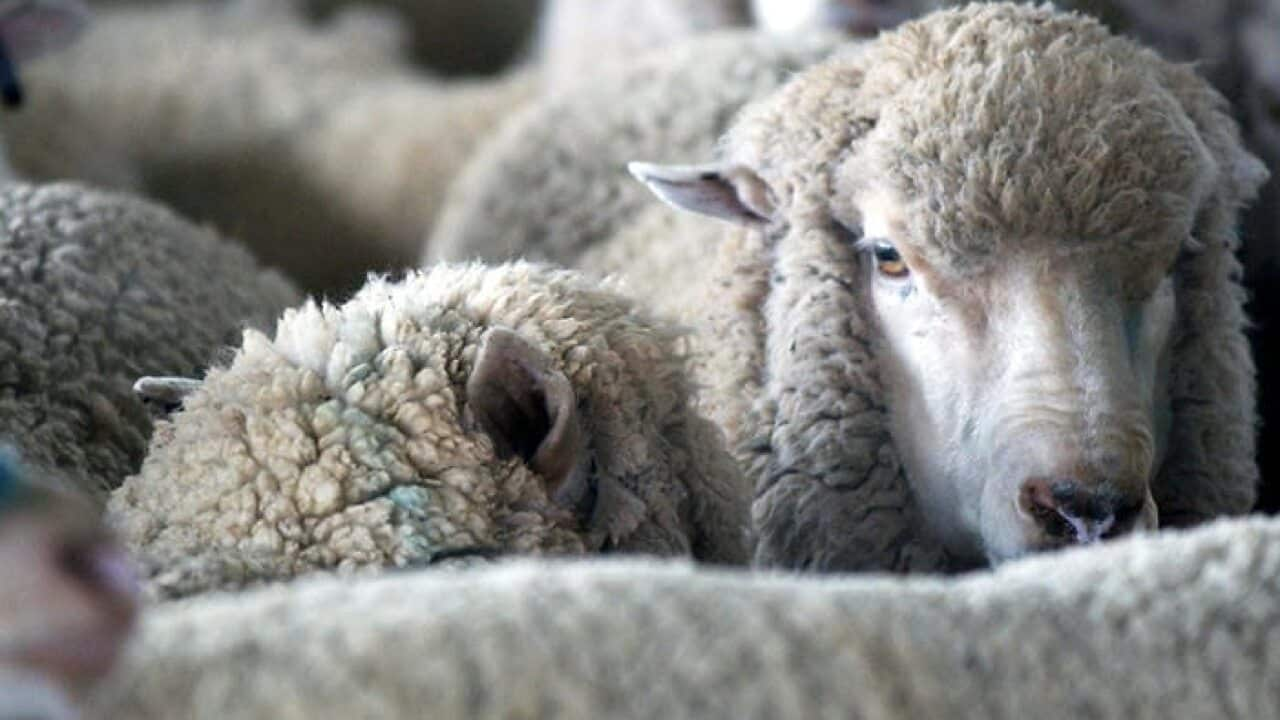A former live export industry boss who falsified documents for a shipment of 22,000 Australian sheep that ended with many of the animals being brutally slaughtered in Pakistan will not spend time behind bars, a Perth judge has ruled.
The 2012 shipment on the Ocean Drover had twice been rejected by Bahrain due to disease concerns, but Garry Robinson's falsified paperwork prompted authorities to allow the animals to disembark in Pakistan.
The District Court of Western Australia heard the then-Wellard Rural Exports manager had instructed an employee to digitally change two documents to wrongly state the sheep had been vaccinated.
Defence counsel Sam Vandongen said his client was under enormous pressure to offload the sheep and didn't want them to be culled at sea, which would have been a horrendous task.
Mr Vandongen said the 46-year-old should have negotiated with government officials but was highly stressed by the prospect of further delays and the effect that would have on the ship-bound sheep.
He also told the court that Mr Robinson had shown symptoms of post-traumatic stress disorder after he was the export manager for the 2003 Cormo Express shipment.
In that incident, 58,000 Australian sheep that had been rejected from Saudi Arabia were stranded at sea for months, and almost 10 per cent died before the remainder were allowed to disembark in Eritrea.
"There was a real emergency," Mr Vandongen said on Tuesday.
"He worked around the clock, without sleep ... to find a solution.
"He believes he was put in a position where he was stuck between a rock and a hard place. He made the wrong decision."
The court heard the sheep were killed because they were wrongly deemed to have been infected with a disease, and Mr Vandongen argued that had nothing to do with his client's actions.
But Judge Michael Gething said they were "critical in the course of the chain".
"Take out Mr Robinson's actions and we don't even get there ... they wouldn't have been there in the first place," Judge Gething said.
The judge accepted Mr Robinson was distressed about the impact of the situation on the sheep, was overwhelmed by the implications of the decision he felt had to make quickly and had "no real support" from his employer.
But his actions had had diplomatic consequences for Australia and the industry, which voluntarily suspended live exports with Pakistan, and it was not the case that "the ends justify the means".
Mr Robinson, who remains in the industry, was sentenced to 18 months in prison but was immediately released on a $20,000 good behaviour recognisance.
Animals Australia legal counsel Shatha Hamade said it was "one of the most appalling episodes" in Australia's live export trade history.
"It was brought about by the dishonest actions of one of its most senior officials."


